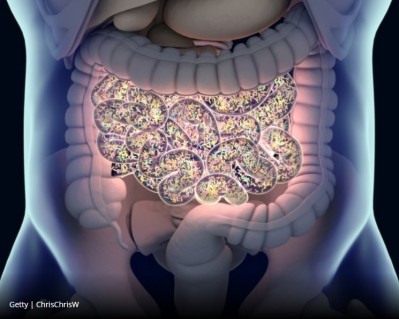Chr. Hansen lends its microbiome knowhow in Lonza biotherapeutics deal

In a 50/50 joint venture, the two multinationals will develop and manufacture these products in a phased investment approach that will see around €90m shared between the partners over three years.
Chr. Hansen’s role will focus on developing, upscaling and manufacturing bacteria strains at its Denmark-based facilities that also add its pharma-related anaerobe capabilities to the joint venture.
Further agreement terms see its human microbiome team that focuses on the next-gen probiotics for dietary supplements and infant formula integrated into Chr. Hansen’ Human Health business.
‘A quantum leap’
“The joint venture is a quantum leap for Chr. Hansen’s human microbiome lighthouse,” said Mauricio Graber, CEO of Chr. Hansen.
“It’s a great opportunity to utilize our microbial capabilities in the highly attractive LBP industry whilst sticking to our strategy of not becoming a fully-fledged pharma company.
“Chr. Hansen has more than 145 years of experience in strain development and manufacturing and we are thrilled to join forces with a leading global company in the pharma CDMO market to become the partner of choice for end-to-end biotherapeutic solutions.
“The clinical trial supply industry is a rapidly emerging field, not to speak of the very large potential when the first bacteria-based medical products enter the commercial market.”
In a conference call briefing, Lonza’s CEO Marc Funk highlighted an estimated 80-90% of non-communicable diseases linked to gut dysbiosis.
“These disease areas include that of the Central Nervous System (CNS) and specifically the role of the gut-brain axis,” he said.
“This is something that will come as an alternative therapeutic route knowing that these conditions need a response. It is something that Lonza can address.”
“We need to think differently about how we develop solutions for manufacturing in the microbiome space as we see the potential of this therapeutic area develop.
“By teaming up with Chr. Hansen, one of the world’s largest producers of bacteria, we are combining expertise that perfectly fits the very specific needs of aspirational companies in the microbiome space.”
Nutrition-pharma mash up
The collaboration is the latest in a long line of agreements involving nutrition and pharma that place the gut microbiome at the centre of research and development efforts.
LBP can be thought of as a natural progression from current nutritional approaches that do not completely reverse the gut dysfunction and gut microbiota alterations linked with faults in microbial growth.
LBP is the latest train of thought that involves administration or promotion of health-associated, living gut microbes that carry out vital metabolic functions and promote growth and resilience in the gastrointestinal tract and throughout the body.
The pharma aspect contributes greatly in addressing ongoing challenges such as the cost, complexity and difficulty scaling up in individually cultivating a gut microbe and blending them to form a LBP.
A number of these anaerobes organisms come with unknown complex, nutrient demands as well as and poor or variable growth.
Pharma involvement also extends to manufacturing standards that will require good manufacturing practice (GMP) facilities and its costly use of large batch fermenting vessels and anaerobic chambers.
Biotherapeutics deals
Last month, French-based LNC Therapeutics revealed details of its efforts in developing a drug candidate targeting the gut microbiota and its role in energy metabolism and the onset of obesity and metabolic disorders.
Other health conditions such as acne, psoriasis, allergies and gastrointestinal ailments were the focus of an agreement between UK-based Microbiotica and Roche-owned biotechnology group Genentech.
The two firms agreed to pool resources in the hunt for new microbiome-based therapeutics and biomarkers for its inflammatory bowel disease (IBD) pipeline.
Inked in June last year, the deal looks to harness artificial intelligence (AI) to hunt for biomarker signatures of drug response, new live bacterial therapeutics and novel targets for IBD.
The deal is Genentech’s second in the microbiome space in the month, after the firm previously paired up with Lodo Therapeutics to search for new medicines based on microbial DNA found in soil.

















